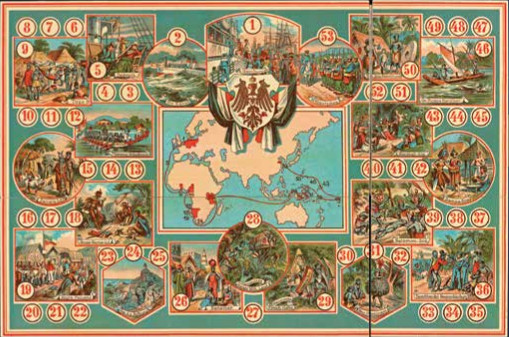I’ve been trying to make sense of everything going on in Gaza, all while traveling and getting bits and pieces of the story. This all the more difficult because in the last few months, I’ve seen a lot of media that reiterates the absolute horror of the Nazi German holocaust, and in the last week, picked up two books that Chiara had been reading: a little book about WWI and a book about Islam. The book about WWI, despite the authors enjoyment of the play-by-play excitement of the war, made me feel like the whole thing was started as a pissing contest for power and territory – absolutely ridiculous.   I learned that the origins of the state of Israel are with this war and the partitioning of conquered lands by various European colonial powers and it made it very easy to feel like peace was doomed from the start. The book of essays on Islam made me realize that the faith and culture of Islam and the politics of the Middle East are so much more complicated, rich, and nuanced than what I had known through my education through the U.S. media. Aside on the importance of teaching: I never learned about Islam, or the Middle East, for that matter, in school. Even during the first Gulf War. It is crazy for me, and likely a whole generation of people my age, to be so ignorant of something so pivitol in the world.
This article, Why Gaza Matters To Us, has been filtering through my social network, and I like this snippet at the end:
As people of color who have our own various histories of resisting the erasure of our cultures from this planet against the spread of military-corporate assimilation, we must stand with the Palestinians, speak out, and take action. The anger and mourning we feel should drive us to break the cycle of domination vs. extinction. Fear, including the righteous fears of Jewish people who want to exist, and the righteous fears of Palestinians that they will be relegated to life in a walled prison and never allowed to be home – these fears are not going to create a world in which peace is possible. We must approach the Israeli people as brothers and sisters who have gone astray in the wake of their own trauma, help them to clean the blood from their hands, and come home to the human family.
I have a harder time with the article included at the end, David Lloyd’s Gaza and the Ghetto. I think that the thought experiment of imagining Nazi Germany in the place of Israel and Palestinians in the place of Polish Jews is an accurate analogy, but it continues to frame the current conflict in terms of the Holocaust, which is the problem with the analysis of too many attrocities whether they’re in Palestine, Rwanda, or elsewhere in the world. State repression, genocide, and people losing their dignity and safety is unacceptable in it’s own right, anywhere, at any time. Framing things, especially Israel vs. Palestine within the Holocaust traps everyone in a hopeless argument of who has had things worse. This is a string of analysis that is easy to get caught in and to which many, many people can add their own legitimate weight, but that ultimately seems to trap everyone. Watching children squabble, it seems like the same argument, though with much lower stakes. Someone else always started it, making retaliation, even if it’s something that you wouldn’t want inflicted on you, justifiable. As I child, I was often told, “life isn’t fair,” which was always unsatisfying, and lacking much empathy at that age, it as hard to see that life was not only unfair, but also mutually unfair. I think the more truthful, and hopeful life lesson is that life isn’t just unless you make it that way and that retaliation, and rationalizing it, is not the same as justice. I want to try to read One Country in the hopes that it offers some way out of the cycle of trying to define who is the most attrocious or victimized and instead figure out how to define the things that everyone wants, safety and dignity among them, concretely, and how to get there. The question of how to achieve one country for two peoples isn’t just crucial to Palestine and Israel. From what I’ve read so far of The Accidental American, to the recent U.S. presidential election (and prop 8), to Chiara comenting on the changing cultural landscape (even at street level) of Italy, to the crazy internal conflicts within arbitrarily drawn nations and conquered empires that were at the heart of the world wars (maybe most wars?), to my own personal experience, the idea that we can or should live in a world with segregated identities or interests is both impossible and undesireable. I am absolutely convinced that conservatives who want to preserve a culturally and ideologically segregated world are less than wrong, they’re irrelevant. Still, I think that radicals who imagine a world without these borders can’t hope for justice without acknowledging cultural and ideological boundries and the people ensnared in them. The question for me becomes how to acknowledge people’s experience and the perception that it creates without succumbing to the morasse of ethical relitivism.
